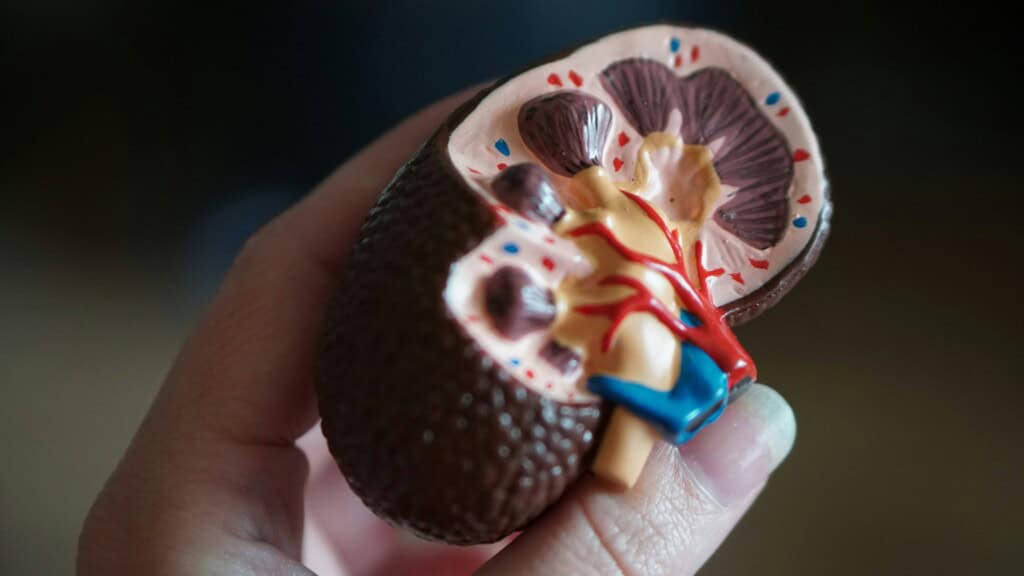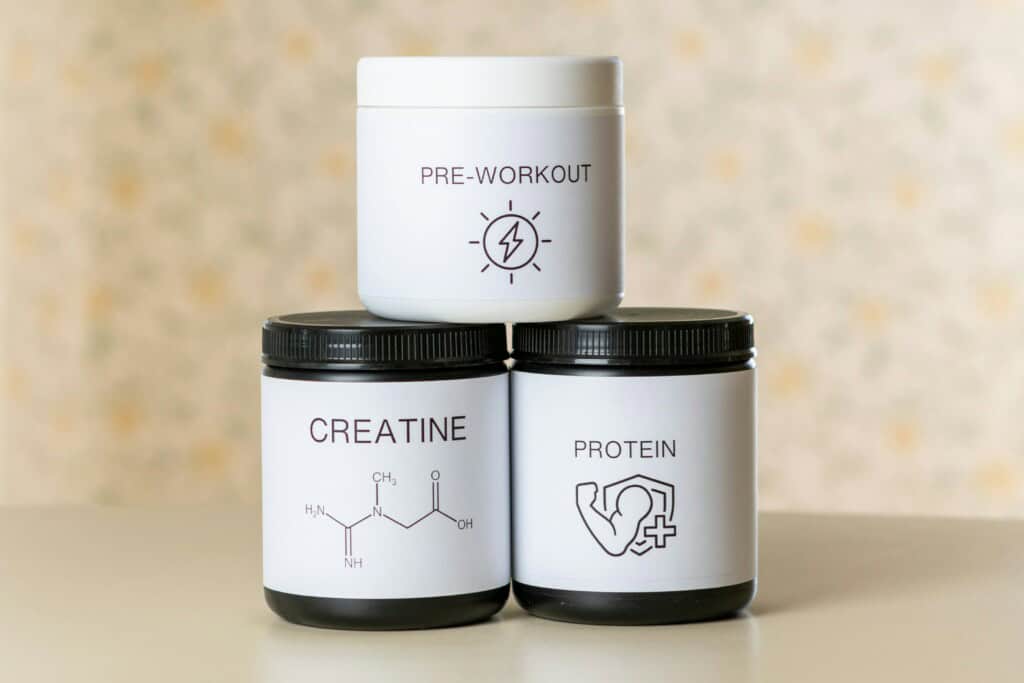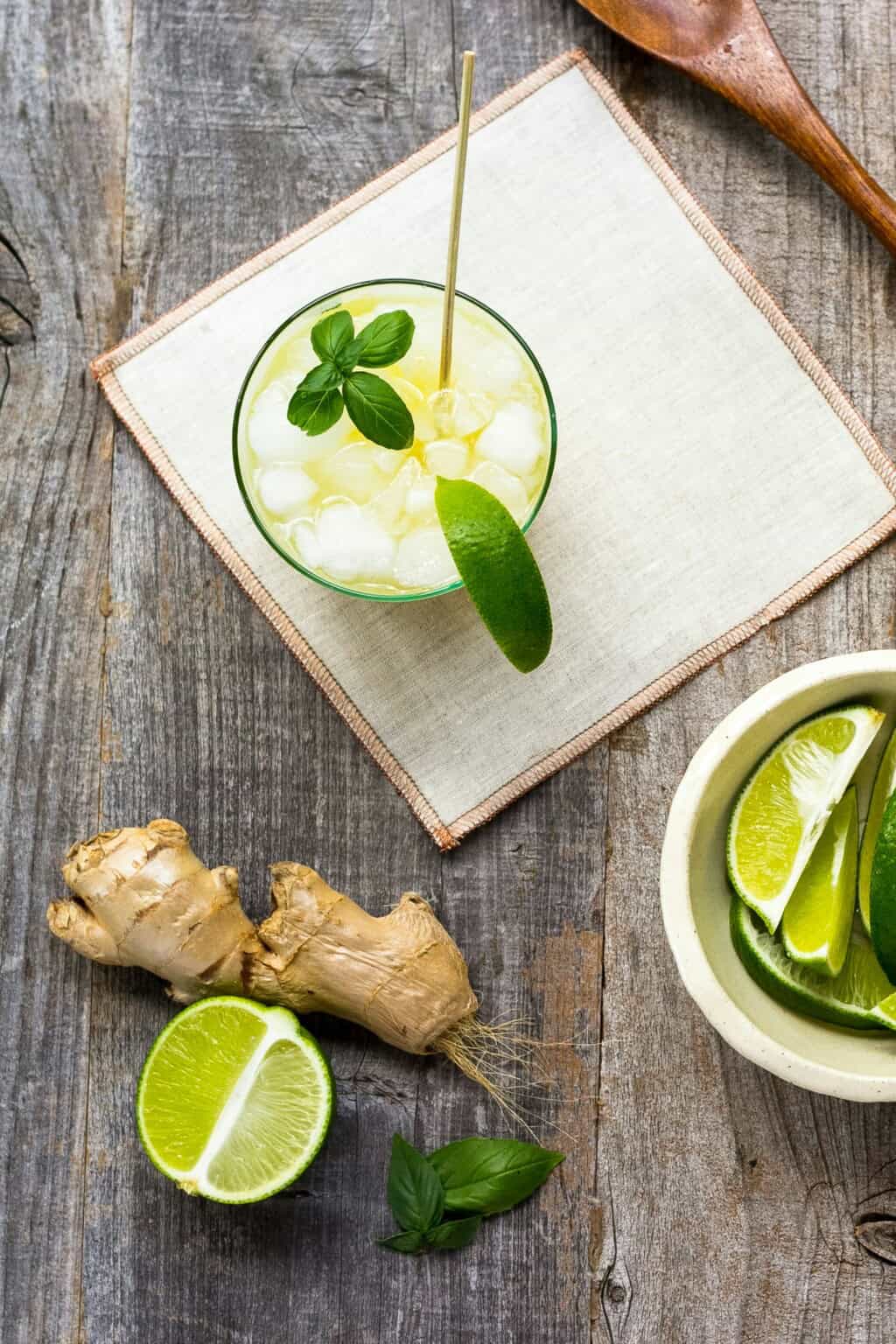This article is from herbal expert Steven Horne.
Roller coasters can be great fun, but they would be a nightmare if you could never get off. If you had to stay on for hours, day after day, you’d wind up stressed, exhausted, and desperate for escape. Unfortunately, every year, millions of people get on the blood sugar roller coaster and can’t get off, and this roller coaster ride also leaves them feeling stressed and exhausted. And, even worse, it leads to major chronic and degenerative diseases.
The blood sugar roller coaster involves rapid swings in blood sugar levels, alternating between spikes and crashes. As sugar levels spike, a person feels an agitated rush and even a temporary sense of euphoria. However, high blood sugar levels are harmful, so insulin is released to rapidly drive the sugar out of the blood and into the cells.
This causes blood sugar to fall lower than the ideal level, creating a blood sugar crash. Blood sugar levels in this phase of the roller coaster ride are too low to maintain proper energy levels and brain function. During the crash phase, a person may feel tired and irritable while experiencing poor concentration and brain fog.
Sadly, the crash phase causes cravings for more sugar, which starts the cycle again.
It’s not a very stable way to live, and the body’s efforts to constantly compensate for these wide swings in blood sugar levels ultimately lead to poor health. If a person stays on this wild ride, they will eventually develop metabolic syndrome and then diabetes, which will cause weight gain and chronic inflammation. The inflammation damages blood vessels, brain cells, joints, and other tissues, contributing to many chronic and degenerative diseases.
If you’re on this dangerous roller coaster ride, it’s time to get off. If you follow the following suggestions and escape this destructive ride, you’ll have more energy, better health, a clearer mind, and more stable emotions. With so much to gain, it’s time to get started.
Understanding Sugar Cravings
One of the biggest obstacles in getting off the blood sugar roller coaster is the addictive nature of sugar. Sugar lights up the dopamine centers in the brain as much as cocaine and other drugs do. It’s hard to make the necessary changes by willpower alone because having a sweet tooth or cravings for carbohydrate-rich foods is natural.
Carbohydrate-rich foods provide quick energy for brain and muscle activity, so the desire for them is perfectly normal. And, because sugary and starchy plants aren’t common in nature, we have sweet taste receptors to help us detect plant foods with high caloric value. However, most people no longer satisfy these needs with whole-plant foods. Instead, they eat refined carbohydrates—table sugar, high fructose corn syrup, white flour, and white rice. These concentrated carbohydrates may satisfy caloric needs but leave your body craving more.
Unlike refined carbohydrates, natural sources of high-carbohydrate foods such as fruits, starchy vegetables, and grains contain fiber, vitamins, and minerals. Even raw honey, one of nature’s most concentrated sources of sugar, contains some bee pollen, which contains many important nutrients.
Whole Foods Versus Refined Carbohydrates
Whole foods help stabilize blood sugar in three ways.
First, the fiber in these foods slows the release of sugars into the bloodstream, so they don’t cause the rapid spikes in blood sugar levels that refined carbohydrates do. Fiber also provides a feeling of fullness, which helps curb appetite and prevent overeating.
This is why you can feel satisfied and full after eating an apple, but you can easily drink the juice of several apples. Juicing the apples removes the fiber and concentrates the sugars. Without the fiber, you can easily consume more sugar, and your body absorbs it faster.
Secondly, along with sugar, whole foods contain vitamins and minerals that your body needs to use the sugar. Refined foods lack these nutrients, and when your body’s needs for them go unmet, you continue to crave more food as your body searches for the nutrients it needs.
An example of this can be seen in the difference between eating white bread and whole-grain bread. You will probably feel satisfied with one or two slices of whole-grain bread, but eating the same amount of white bread may leave you unsatisfied. Although fiber content plays a role in this, so does the presence of vitamins and minerals in the whole grain. You’re getting everything your body needs rather than just empty calories.
Lastly, whole foods contain compounds that inhibit the proliferation of unfriendly microbes (harmful bacteria and yeast) and feed the good bacteria in the intestines. On the other hand, refined carbohydrates encourage the growth of unfriendly micro-organisms.
The microbes in your gut create chemicals that influence your appetite. Yeast and unfriendly bacteria will secrete chemicals that make you crave more sugar, while good bacteria will secrete chemicals that cause you to crave natural foods with fiber. Thus, balancing the microbiome in the gut leads to craving healthier foods.
Intestinal dysbiosis causes many health problems. Microbes feeding off of simple sugars create acid waste and gas, which can result in acid indigestion, belching, bloating, burping, and even acid reflux. It also causes leaky gut syndrome, which results in increased allergic reactions, autoimmune reactions, and more inflammatory problems. It also contributes to various mood disorders, including anxiety and depression.
Refined Carbohydrates and Disease
Refined foods have long been a source of disease. For example, in the past, people could get plenty of vitamin B from eating whole grains like wheat and brown rice, but when these whole grains were stripped of important nutrients to produce white flour and rice, people started to get sick because of B vitamin deficiencies.
Modern society has taken the convenient path to solve these overt deficiency diseases. White flour is enriched with B vitamins and high carbohydrate foods like bread and cereal often have some vitamins and minerals added to increase their nutritional value. There are two problems to this approach. First, these isolated nutrients aren’t utilized as efficiently as natural ones. And second, there are many nutrients lost while refining foods that don’t get replaced.
As a result, people continue to suffer from health problems because of these refined foods. Everywhere they are introduced, there is a corresponding rise in diabetes, obesity, and other diseases.
Tips for Getting Off the Roller Coaster
Once you understand sugar cravings and the problems associated with refined carbohydrates, you can take action and break this addictive cycle. The following tips will help you reduce sugar cravings, keep your blood sugar balanced, and help you enjoy greater physical and emotional health.
Don’t Restrict. Substitute!
Since your body likes sweet things, it makes no sense to tell yourself, “I can’t eat anything sweet.” This attempt at self-deprivation eventually results in internal rebellion and an even stronger craving for sweets, which leads to binges, where we give into our carbohydrate cravings.
A strategy that works is to start feeding your body with healthier sources of carbohydrates that actually have some nutritional value. Fruits are a good place to start. Try eating apples, oranges, bananas, figs, dates, raisins, and other whole fruits as snacks instead of candy bars, cookies, and pastries. This is especially helpful if you also eat some nuts with the fruits, as the nuts provide protein and fats, which also help to satiate the appetite. Pick fruits you enjoy, and make sure they are ready to eat when a craving hits. Get rid of sources of temptation, and avoid buying them in the future.
You can substitute more natural sugars for refined sugars when baking or cooking. Try using date sugar, coconut sugar, real maple syrup (grade B is best), black strap molasses, raw honey, or freeze-dried sugar cane juice instead of refined sugar. These sweeteners have some nutritional value and you’ll eat less of the sweet foods you make with them than you will using refined sugar.
There are helpful, natural sugar substitutes you can use such as stevia and monk fruit.
It also helps to use whole grains instead of refined grains—brown rice instead of white rice, whole wheat instead of white flour, and other whole grains like oats, barley, millet, and rye. Of particular benefit are the pseudo-grains, amaranth, quinoa, and buckwheat. These all help to control blood sugar while satisfying that craving for carbohydrates,
Start the Day Right
If you start the day with sugar-sweetened coffee, sugary breakfast cereal, toast and jam, pastries, and other high-carbohydrate foods, you’re initiating the blood sugar roller coaster for the entire day. You can reset this by eating more protein and fats for breakfast, such as eggs, meats, nuts, or avocados.
It makes sense to start the day with high protein food, since your body produces more protein-digesting hydrochloric acid in the morning than it does in the evening. While bacon and eggs might be a classic example, there are plenty of other options. Try starting the day with cottage cheese, unsweetened whole milk yogurt with fresh fruit, or a protein shake. It also helps to get some good fats such as grass-fed butter or cream and coconut oil. Coconut oil has the added advantage of containing caprylic acid which helps destroy yeast and correct problems with intestinal dysbiosis.
Correct Intestinal Dysbiosis
Correcting intestinal dysbiosis will also help balance your blood sugar by reducing your cravings for sweets. It takes a couple of weeks of eating more natural foods to reset your microbiome, but once you do, you’ll find yourself craving natural foods instead of refined foods. You can help the process by using herbs that help to knock down the overgrowth of unfriendly bacteria and yeast.
Many of the herbs that help to control blood sugar are also antimicrobial and help balance your gut microflora. These include cinnamon, nopal, goldenseal, and bitter melon. Berberine, an alkaloid found in goldenseal, Oregon grape, coptis, and other antibacterial herbs have been shown to lower blood sugar levels and aid both metabolic syndrome and diabetes.
So, try taking berberine, cinnamon, or a formula containing some of these herbs to help lower your blood sugar levels and improve the balance of gut microbes. It also helps to eat fermented foods and/or take probiotic supplements.
Stabilize Your Blood Sugar Levels
If your mood and energy levels drop in the middle of the afternoon and you find yourself suffering from severe cravings for sugary and/or starchy foods, try taking licorice, algae, or adaptogens like eleuthero to stabilize your blood sugar levels.
If you have high blood pressure, replace the licorice root with eleuthero or a formula containing herbs like eleuthero, schizandra, astragalus, and ginseng. It also helps to take a spoonful of coconut oil with each dose of herbs.
If you experience frequent thirst and urination, a sense of dryness in your body, hot flashes, night sweats and/or burning sensations in your hands and feet, try taking a formula containing eucommia, glehnia root, rehmannia, and kudzu root. The herbs in this formula help to balance blood sugar, reduce insulin resistance, and help your cells to hydrate better.
Get Physically Active
Resistance training (using weight machines, free weights, and calisthenics) along with cardiovascular (aerobic) exercise is also helpful for getting off the blood sugar roller coaster. Resistance exercises train the muscles to take up glucose without the need for insulin, thereby decreasing insulin requirements. This helps you avoid blood sugar spikes and their associated crashes and reduces stress by reducing cortisol production, which helps you avoid binge eating.
The key to successful exercising is consistency. Make it a priority in your life and schedule the time for it. Thirty minutes is all that is needed. If you’ve been sedentary for a long period, the first week will be tough, but hang in there! As you work through initial pain, exercising will gradually become easier, and you’ll feel much better.
Additional Helpful Supplements
There are a number of supplements that can help to balance out your blood sugar levels and reduce your food cravings. Here are a few to consider.
Chromium is involved in creating the glucose tolerance factor (GTF), a hormone-like compound that works with insulin to transport glucose into the cells.
Magnesium is another mineral that helps stabilize your system. If you tend to feel tense and anxious, suffer from migraine headaches or insomnia, and are irritated by minor inconveniences, you probably need more magnesium.
A formula containing vitamin C and the B-complex vitamins in a base of adaptogenic and nervine herbs may also be helpful. This reduces stress levels, helps your body process carbohydrates properly, and reduces sugar cravings.
It may also help to take a formula that contains herbs like cinnamon, fenugreek, bitter melon, gymnema, and nopal, and perhaps minerals like chromium and vanadium.
Avoiding diabetes, reducing your risk of heart disease, losing weight, having more energy, and potentially lengthening your life are outcomes well worth the effort to get off the blood sugar roller coaster. Make your escape and start taking action today.
The Problems with Non-Caloric Sweeteners
Artificial and non-caloric sweeteners might seems like an easy exit, but they aren’t the answer to escaping the blood sugar roller coaster. In April of 2023, the World Health Organization (WHO) released a paper on the use of non-sugar sweeteners, advising people not to use them.1 A systematic review of the most current scientific evidence showed that using artificial sweeteners was associated with an increased risk of type 2 diabetes, weight gain, cardiovascular disease, and overall mortality.
When you crave sugars or carbohydrates, your body is signaling a need for calories (energy). Non-caloric sweeteners trick your body into thinking it’s getting energy, but it isn’t. So, this is followed by an increased (not decreased) desire for sugar. This is true both for artificial sweeteners and for non-caloric natural sweeteners such as stevia and monk fruit.
Sucralose
The most popular artificial sweetener right now is sucralose, produced by chlorinating sugar. This alters the structure of the sugar molecules by replacing three hydroxyl groups with chlorine atoms.
Although sucralose is currently considered to be a safe sweetener, research is accumulating that sucralose contributes to a wide variety of health problems. These include increased appetite, metabolic syndrome, weight gain, and diabetes, the very problems artificial sweeteners are supposed to help prevent.
Worse, there is evidence that it contributes to other problems, too, such as irritable bowel syndrome, liver inflammation, disturbed gut flora, reduced immunity to viral infections, and liver inflammation. It may also accumulate in tissues, damage DNA, and produce carcinogenic compounds.
Aspartame
Aspartame is composed of two amino acids (aspartic acid and phenylalanine) linked together by methanol (wood alcohol). At only 86° F (30° C), aspartame can break down, releasing these individual components.
Methanol is toxic because it breaks down into formic acid and formaldehyde (embalming fluid). Methanol is a known carcinogen. Aspartic acid is a neuroexcitotoxin. In large amounts, it overstimulates the brain and contributes to ADD/ADHD conditions.
Aspartame has been associated with many health problems. Like sucralose, it contributes to weight gain, but it is also damaging to the nervous system. Its use is associated with increased risk for Alzheimer’s disease and dementia, as well as mood disorders, headaches, and migraines. It also causes intestinal dysbiosis and increases the risk of cardiovascular disease and cancer.
A Sweeter Alternative: Xylitol
One option for a natural sweetener that isn’t completely non-caloric is xylitol. It’s a good option to use when weaning off of refined sugar. Although it does have some caloric value, it is very low on the glycemic index (so it doesn’t spike blood sugar levels) and it has some health benefits. Xylitol helps control harmful bacteria, has been shown to aid dental health, and may also help to balance the gut microflora.
Photo by Heather Ford on Unsplash










